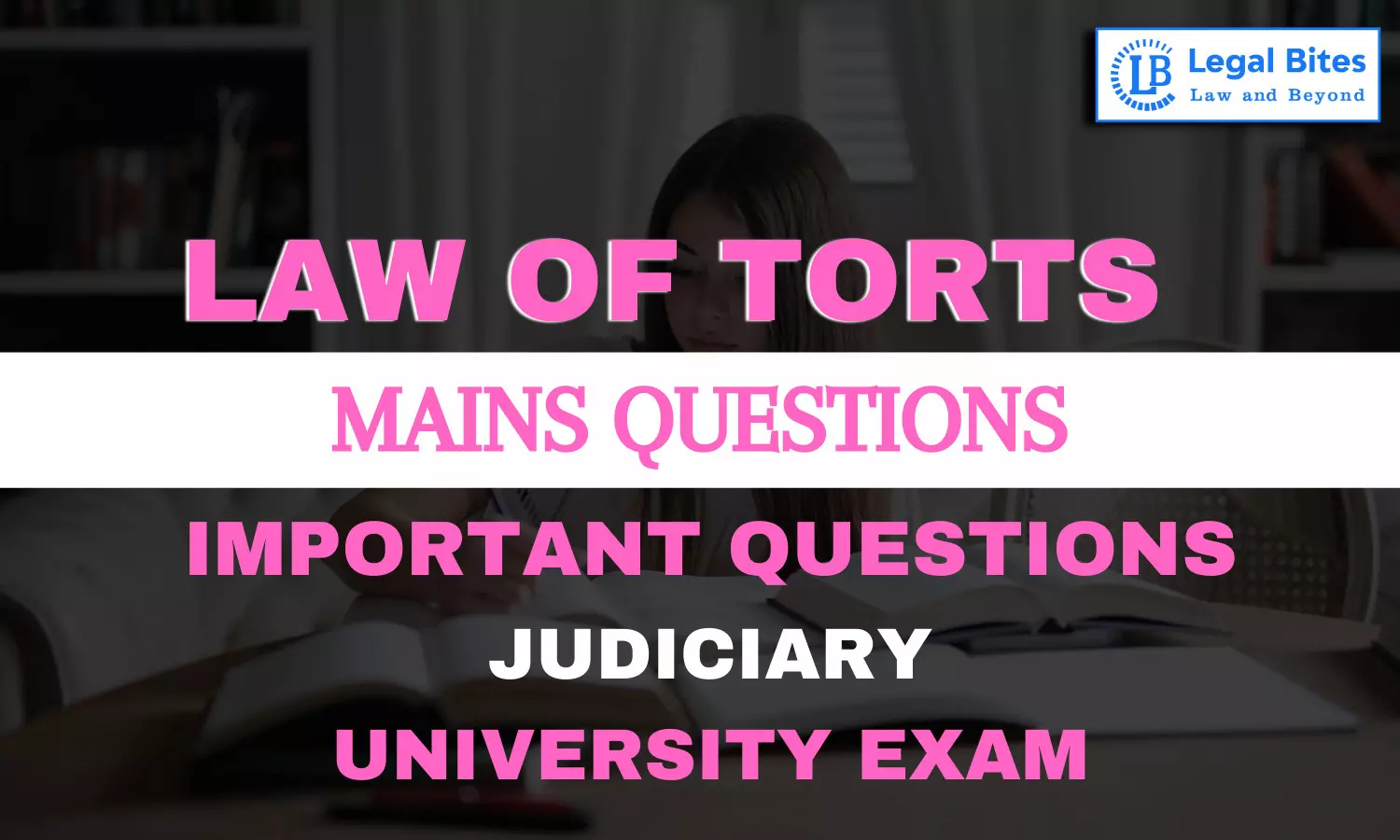Explaining the principle of "Vicarious Liability", which has been provided in the Law of Torts, mention its exceptions too.
Find the question and answer of Law of Torts only on Legal Bites.

Question: Explaining the principle of "Vicarious Liability", which has been provided in the Law of Torts, mention its exceptions too. [UJS 2014]Find the question and answer of Law of Torts only on Legal Bites. [Explaining the principle of "Vicarious Liability", which has been provided in the Law of Torts, mention its exceptions too.]AnswerVicarious liability is a legal concept in the law of torts that holds an employer or a person in a supervisory position responsible for the wrongful acts...
Question: Explaining the principle of "Vicarious Liability", which has been provided in the Law of Torts, mention its exceptions too. [UJS 2014]
Find the question and answer of Law of Torts only on Legal Bites. [Explaining the principle of "Vicarious Liability", which has been provided in the Law of Torts, mention its exceptions too.]
Answer
Vicarious liability is a legal concept in the law of torts that holds an employer or a person in a supervisory position responsible for the wrongful acts of their employees or subordinates. This principle states that an employer can be held liable for the damages caused by the acts of their employees, even if the employer was not directly involved in the harmful conduct.
The concept of vicarious liability is based on the principle that an employer has a duty of care to ensure that their employees do not cause harm to others while carrying out their duties. The employer is deemed to have control over the employees and the means by which they perform their work, and is therefore held responsible for their actions.
A landmark case in the development of vicarious liability is the case of Lister v. Romford Ice and Cold Storage Co. Ltd, (1956)UKHL 6. In this case, the plaintiff was injured while working at a cold storage facility and sued the company for negligence. The court held that the company was vicariously liable for the actions of its employees because it had a duty of care to ensure the safety of its employees. The court also held that the company was responsible for the actions of its employees because they had control over the means by which they performed their work.
A more recent case that highlights the principle of vicarious liability is the case of Morris v. CW Martin & Sons Ltd, (1966) 1 QB 716. In this case, the plaintiff was injured while working on a building site and sued the company for negligence. The court held that the company was vicariously liable for the actions of its employees because they had control over the means by which they performed their work. The court also held that the company had a duty of care to ensure the safety of its employees.
Exceptions to the Principle of Vicarious Liability
There are several exceptions to the principle of vicarious liability under tort law. These exceptions limit the circumstances under which an employer can be held liable for the actions of their employees. Some of the most common exceptions include:
Independent Contractors: An employer is not vicariously liable for the actions of independent contractors, as they do not have control over the means by which the contractors perform their work. Independent contractors are individuals who provide services to a company but are not considered employees.
Intentional Torts: An employer is generally not vicariously liable for intentional torts committed by their employees. Intentional torts are actions that are committed with the intention of causing harm, such as assault or battery.
Unauthorized Acts: An employer is not vicariously liable for the unauthorized acts of their employees. An unauthorized act is an act that is outside the scope of the employee's job description and was not authorized by the employer.
Acts outside of Work Hours: An employer is not vicariously liable for the actions of their employees that occur outside of work hours unless the actions are related to the performance of their job duties.
Criminal Acts: An employer is generally not vicariously liable for criminal acts committed by their employees, as criminal acts are outside the scope of employment and are not covered by the principle of vicarious liability.
Acts of Negligence: An employer is not vicariously liable for the acts of negligence committed by their employees if the employer had no knowledge of the employee's incompetence and took reasonable steps to prevent harm.
These exceptions to vicarious liability are based on the principle that an employer should only be held responsible for the actions of their employees if they have control over the means by which the employees perform their work and have a duty of care to ensure the safety of others.

Mayank Shekhar
Mayank is an alumnus of the prestigious Faculty of Law, Delhi University. Under his leadership, Legal Bites has been researching and developing resources through blogging, educational resources, competitions, and seminars.
